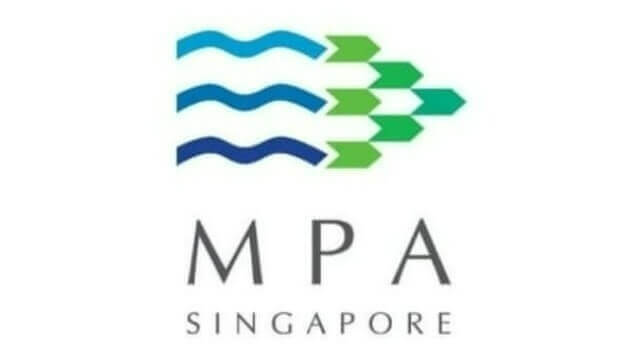MPA Investigates Bunker Fuel Contamination in Singapore Port

[By: MPA]
Update on MPA’s Investigation of Bunker Fuel Contamination in Singapore Port
The Maritime and Port Authority of Singapore (MPA) was notified on 14 March 2022 that a number of ships had been supplied with High Sulphur Fuel Oil (HSFO) containing high concentration levels of Chlorinated Organic Compounds (COC) (1,2-Dichloroethane, Tetrachloroethylene) in the Port of Singapore. MPA has conducted investigations and identified the source of the contamination.
Investigation Findings
2. The HSFO containing high concentrations of COC was traced back to fuel purchased by Glencore Singapore Pte Ltd (Glencore) in January and February 2022. Glencore had purchased the fuel through Straits Pinnacle Pte Ltd [1] (Straits Pinnacle), which had contracted its supply from Unicious Energy Pte Ltd [2] (Unicious). The contaminated HSFO was loaded at the Port of Khor Fakkan, United Arab Emirates (UAE) onto a tanker and shipped to floating storage facilities in Tanjong Pelepas, Malaysia to be further blended. The blended HSFO was subsequently delivered to storage facilities in Singapore. Part of the blended HSFO was also sold by Glencore to PetroChina International (Singapore) Pte Ltd (PetroChina).
3. To ascertain the source of contamination, MPA tested fuel samples taken from various sources, including the tanker which delivered the HSFO from the Port of Khor Fakkan, fuel blending facilities, and storage facilities of Glencore and PetroChina. Fuel onboard the tanker was found to contain high concentrations of COC, of up to 21,000 ppm. Forensic fingerprinting analysis of the fuel samples taken from the tanker showed a match with the samples taken from several affected ships that had taken HSFO from Glencore and PetroChina. The forensic fingerprinting analysis established with reasonable certainty that contaminated fuel onboard affected ships had likely come from the same source of fuel onboard the tanker that was loaded at Port of Khor Fakkan, UAE.
4. All MPA-licensed bunker suppliers are required to test the fuel to ensure that it complies with international standards. MPA has established that both Glencore and PetroChina, as MPA-licensed bunker suppliers, had carried out tests on the fuel supplied based on the international standards of petroleum products of fuel - International Organization for Standardization 8217 (ISO 8217) [3]. However, as the current international standards do not require tests for COC, the contamination was not promptly detected [4].
5. PetroChina and Glencore have since promptly taken the necessary steps to stop supplying the affected fuel. MPA has not received any report of fuel containing high COC supplied by the two suppliers since 31 March 2022.
6. In light of this incident, MPA encourages bunker buyers to request for enhanced fuel testing for COC from their bunker suppliers. MPA is also conducting further testing of both Glencore and PetroChina’s fuel samples.
Follow-up Measures
7. As a global bunkering hub, MPA takes bunker quality assurance seriously. MPA’s quality fuel assurance measures comprise the Bunker Quality Inspection System (BQIS) and the Intensified Bunker Quality Checks (IBQC). The BQIS tests the quality of bunker supplied to vessels while the IBQC tests bunker carried by bunker tankers before supply to vessels. On average, over 1,300 bunker samples are tested annually under BQIS and IBQC to verify compliance with ISO 8217. While the occurrence of COC is rare in bunkers, MPA will include COC to the list of chemicals to be tested under both BQIS and IBQC with immediate effect.
8. MPA and the Singapore Shipping Association (SSA) are currently in discussions with the industry on measures to strengthen the quality assurance of bunkers supplied in Singapore. MPA and SSA will co-chair an industry expert group, which will include relevant professional bodies, to establish a list of chemicals to be tested and their corresponding concentration limits. The expert group is expected to make its recommendations on additional measures to strengthen bunker quality assurance of bunkers delivered in Singapore, on an urgent basis.
9. MPA has also raised this issue at the international level. At the recent International Maritime Organization Maritime Safety Committee (MSC105) working group meeting on ‘Measures to enhance safety of ships related to use of fuel oil’ held between 20 and 29 April 2022, MPA has informed the meeting that a paper on the recent contamination case will be submitted in due course for Member States’ awareness.
[1]: Based on ACRA records, Straits Pinnacle is a Singapore-registered company focusing on wholesale trade of a variety of goods.
[2]: Based on ACRA records, Unicious is a Singapore-registered company that conducts international trading of petroleum, petrochemical products and bulk commodities.
[3]: ISO 8217 - International Standards Petroleum products — Fuels (class F) — Specifications of marine fuels – Table 2.
[4]: ISO 8217 notes that the marine industry continues to build on its understanding of the impact of specific chemical species and the respective critical concentrations at which detrimental effects are observed on the operational characteristics of marine fuels in use. It also states that it is not practical to require detailed chemical analysis for each delivery of fuel beyond the requirements listed in Table 1 (distillate marine) or Table 2 (residual marine) in the Standard.
The products and services herein described in this press release are not endorsed by The Maritime Executive.

